
Osman Mamandi sits by his brother Ahmad’s grave in the village of Parastan, Sardasht on November 20, 2020. Photo: Jabar Dastbaz/ Rudaw
DASHTI, Iran — As the November sun set on Iranian Kurdistan, a shepherd messaged his wife, asking her to heat up water so that he could take a warm shower after a long day’s work.
Ahmad Mamandi held a BA in Sociology, but like so many other young Iranian graduates, he had not been able to get a job related to his field of study. The 30-year-old reluctantly took work looking after livestock in the fields and pastures near his home village of Dashti close to Sardasht in West Azerbaijan province to support his family, all the while hoping he would soon be able to get a job better matching his qualifications.
Twenty minutes after Ahmad sent his message, his wife Kwestan heard the deafening sound of an explosion. It took her a moment to come to her senses; when she did, she rushed out of the home they shared to see a car pull up to the front yard. Ahmed was propped up in the passenger seat, covered in blood and moaning in pain. Chunks of flesh had been torn off of his shins, which were almost severed from the rest of his legs.
Kwestan would not be given a chance to bid farewell to her husband until the next day, when his dead body was returned home from the morgue at Urmia hospital.
The borderlands of Iranian Kurdistan are littered with millions of mines, most of which were left behind after the Iran-Iraq war that spanned the 1980s. Though Iran has asked for international help for the mammoth task of demining its land to minimise civilian casualties, it has annually abstained from signing on to the United Nations' Mine Ban Treaty of 1997, citing the need to combat the threat posed by “terrorist groups and drug traffickers” at its porous, western border with Iraq, especially with the Kurdistan Region.
The last leg of the short journey from Sardasht to Dashti is marked by a dirt road lined by bushes and oak trees. I meet Ahmed’s brother Rahim, who was with him on the evening of the deadly explosion. “My brother was bringing the animals back, and I’d gone ahead of him to open the barn doors,” Rahim told Rudaw English.
“As soon as I got to the barn I heard a massive explosion, so I ran back towards him. At first, all I could see was smoke whirling all over the place. As the smoke and dust slowly settled, I saw Ahmad covered in blood. Next to him were the carcasses of sheep and the sheepdog.”
Rahim was overwhelmed by grief as he continued recounting what happened. “I couldn’t do anything until my other brothers and other people from the village came to us,” he said. “They took my brother to Sardasht hospital.”
Ahmed’s injuries were so severe that he was sent away from Sardasht, Rahim said, because the hospital did not have the expertise to treat and operate on him. On the way to a better-equipped hospital in Mahabad, the paramedics then decided that a facility in Urmia, over 100 kilometres away, had the expertise needed to treat him. “Before getting to Urmia hospital, my brother took in his last breath,” Rahim said.
Most of Iran’s estimated 16 million landmines lie in the Iranian provinces bordering Iraq – Ilam, Kermanshah, Khuzestan, Kurdistan and West Azerbaijan, all of which except Khuzestan are Kurdish-majority provinces.
Professional deminer Behnam Sadeghi first received training from the government in 1989, a year after the end of the Iran-Iraq war. He has since worked in the five contaminated provinces in western Iran, raising awareness and overseeing the work of demining teams.
“At the end of the war, official demining experts estimated that 16 million landmines remained,” Sadeghi told Rudaw English. “They contaminated 4.2 million hectares in Ilam, Khuzestan, Kermanshah, Kurdistan and West Azerbaijan.”
“Last year… nine people were killed and 26 were wounded,” Sadeghi, who also runs a blog keeping a tally of incidents involving landmines told Rudaw English on Monday. “Since the beginning of this year, 12 people have been killed and 19 others wounded.” In the latest incident Sadeghi documented, a 42-year-old man was killed in Oshnavieh, West Azerbaijan on November 22.
The Geneva-based Landmine and Cluster Munition Monitor identified a total 2,823 deaths and over 7,000 injuries from landmines and explosive remnants of war in Iran between 1988 and 2017. Across the border, Iraq is among the top ten most landmine-contaminated countries in the world, according to the monitor.
Iran has already heavily fortified the border with the Kurdistan Region of Iraq. The border area is home to some of Iran’s most impoverished people, tens of thousands of whom have worked as kolbars – porters who carry untaxed goods across the Kurdistan Region of Iraq-Iran border. Ten kolbars were wounded and one more killed as a result of landmine explosions in the area, according to Iranian Kurdish human rights monitor Hengaw, and six more kolbars were wounded in 2020. Armed Kurdish groups, nestled in the border’s mountains. Iranian commanders have promised reinforcements to the border guard presence in the form of drones and other “smart” defences.
Over 160 countries voted to adhere to the Mine Ban Treaty at the 2019 UN General Assembly. Seven armed Iranian Kurdish groups that fight on the mountainous Iran-Iraq border have pledged not to use landmines in their fight against the Iranian regime, according to the landmine monitor. But Tehran has said it has legitimate military reasons to continue using landmines, citing terrorism and drug trafficking across its borders as a reason. Iran was among 18 countries that abstained from voting to be bound to the treaty at the UN General Assembly in December 2019.
Accompanied by Rahim, Kwestan, and Ahmed’s daughter, I visit the spot where the mine exploded, next to the barn right behind their house. A trail of blood too stubborn to be washed away in the rain stains the soil, and a shepherd’s crook ridden with holes lies abandoned.
Kwestan holds her three-year-old daughter Baran tight against her slight frame. “We got married four years ago”, 30-year-old Kwestan said. “He suggested we live with his parents until he got a job. He visited different organisations and offices, but he couldn’t get a job, so he begrudgingly became a shepherd.”
Ahmad was always hopeful that he would be able to build a better future for his young family, Kwestan said. “Even if he still couldn’t get an appropriate job, he’d be able to save up some money, and we’d move to Sardasht and build a house… there he could begin working in a market. He couldn’t keep working as a shepherd after all those years of study.”
Ahmad’s eleven surviving siblings crowd the home of their parents. His mother Amineh is inconsolable over the loss of a son she says she cannot live without.
“I’ve been bedridden for the past three years because of my diabetes and heart condition. Ahmad was both my doctor and my nurse, administering my medication day and night,” Amineh said.
“I had no idea of what was happening that evening until his wife came into the house crying, telling us that Ahmad had stepped on a mine and detonated it. I passed out; when I came round, my sons and daughters were crying, and I realised that my beautiful son was no longer alive.”
Tears roll down Haj Aziz’s face as he recounts his son’s perseverance through stacked odds.
“Ahmad was an intelligent student and graduated with a great score. But we didn’t have any connections, so he wasn’t hired and had to be a shepherd. He used to tell me, ‘Dad I won’t give up, someone must employ me’… unfortunately, his destiny was to die and leave us.”
“There used to be a military base behind our house, but it was abandoned twenty years ago,” Haj Aziz said. “The floods must have washed the mine towards our home.”
“My son is survived by his wife and a little child. I ask the officials in charge to compensate for the loss of my son, since he died through no fault of his own.”
Justice for the loss of their son does not look likely any time soon. Demining in these contaminated areas is slow, as is the award of compensation from the government for families of the victims. Worryingly, mine disarmament policy has seen regression worldwide, including President Donald Trump’s reversal of an Obama-era ban on US landmine use.
“Unfortunately, there is no intention to demine the land. The responsibility for the victims’ deaths is on the state that planted the mines in the area,” Osman Mosayyan, Iranian parliament member for Sardasht told Rudaw English.
“There are 300 cases of mine victims which have not been settled in terms of compensation in Sardasht,” Mosayyan said. “Some of those cases have been put off for 20 years, and the victims still waiting to be compensated”. Mozayyan has set up a municipal commission to deal with the victims of landmines, but cases are meeting dead ends at the local level too.
A lack of international assistance in demining is due in part to Iran’s failure to sign the Mine Ban Treaty, Mosayyan said. Where the state is failing to deal with demining, dedicated non-governmental organisations and groups of activists are having to do what they can to protect the public from mines, including running public education programs.
Ahmad’s older brother Osman takes me to the cemetery where Ahmad is buried in Parastan, a village near Dashti. On the way, Osman tells me of his last interaction with Ahmad; in the ambulance between hospitals, Ahmad asked over and over again for water. The last words from his parched throat were “take care of my daughter Baran”.
We are graveside, and drizzle falls from the sky. Osman cries so hard that he can no longer speak.


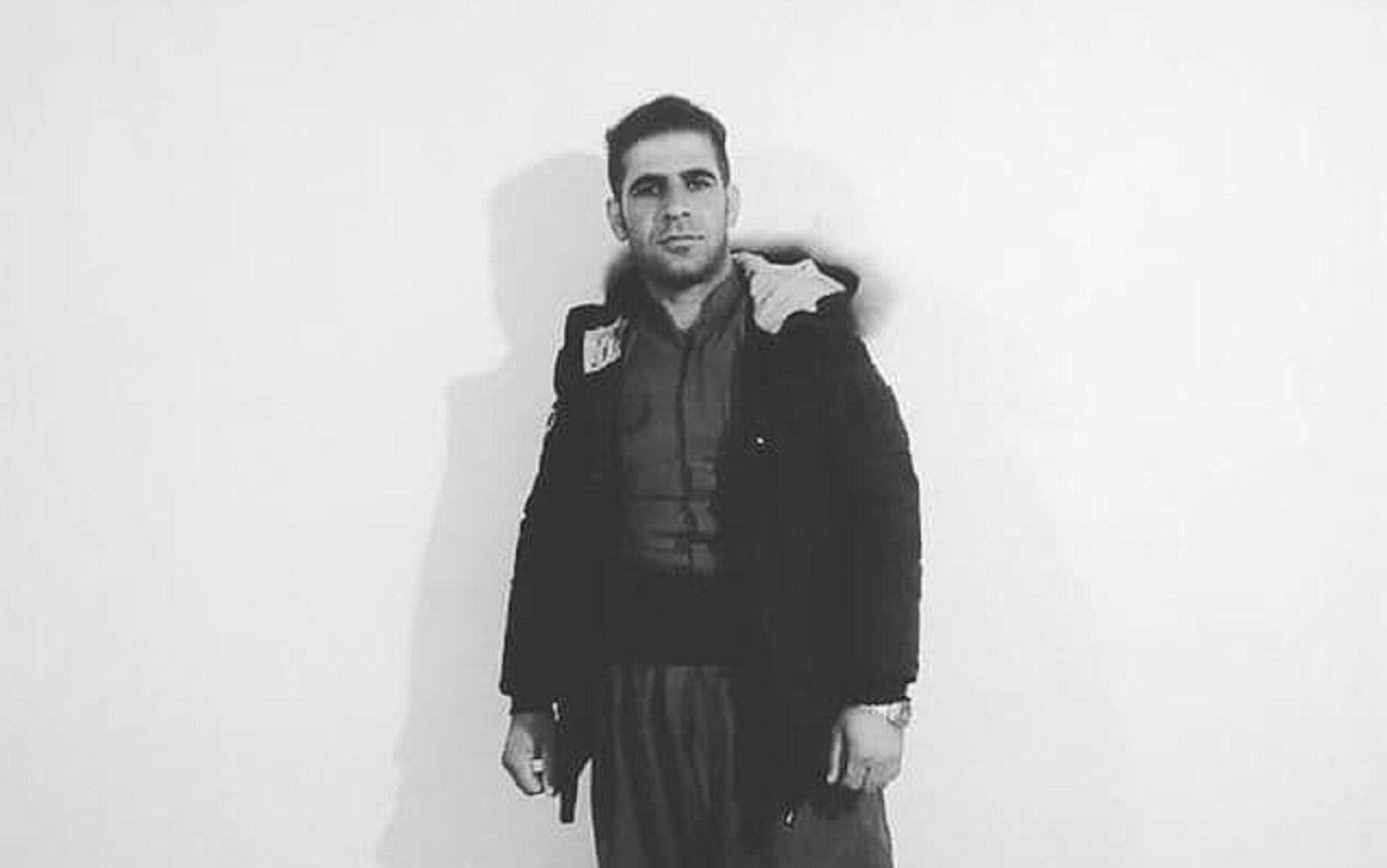
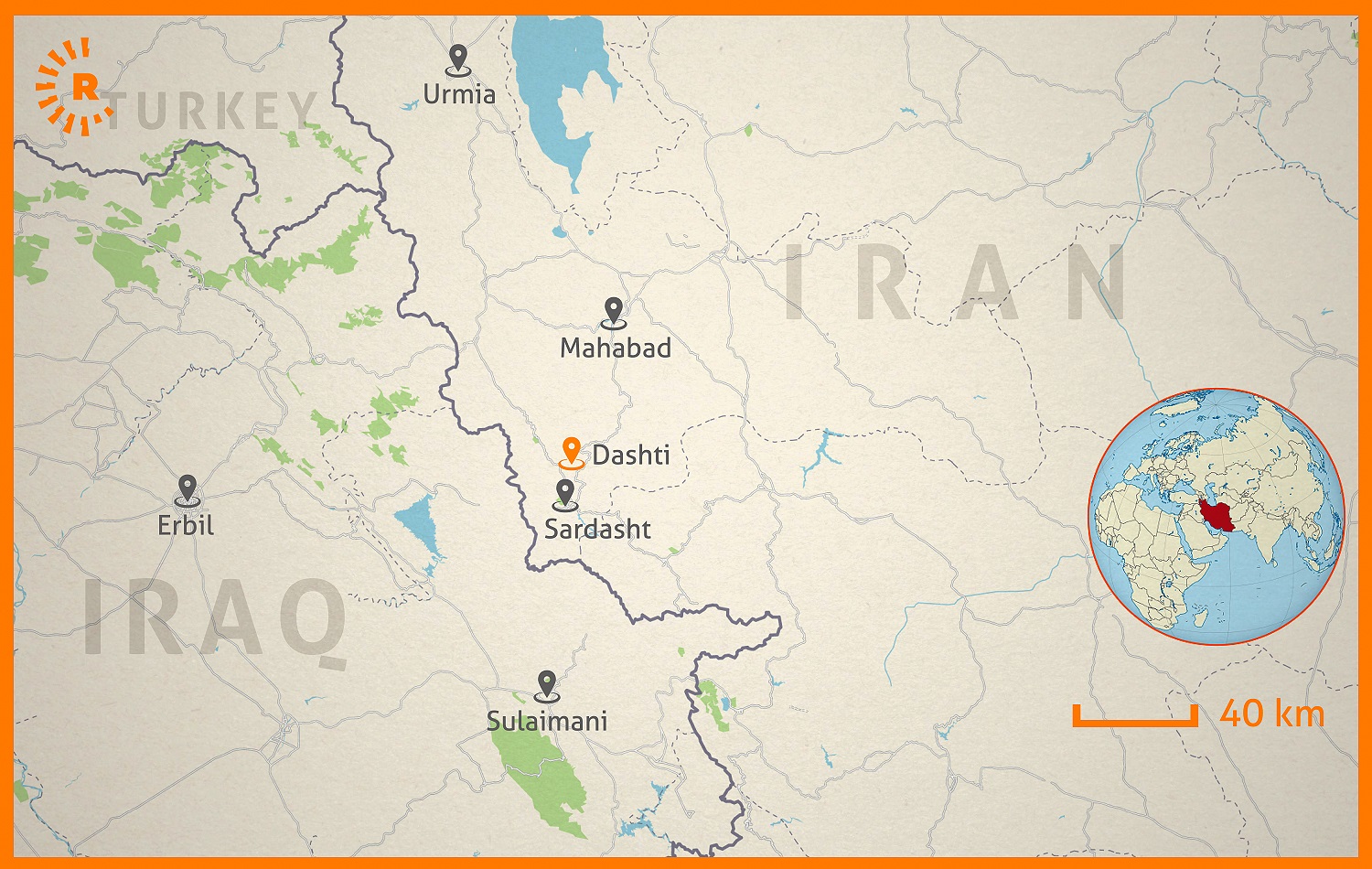
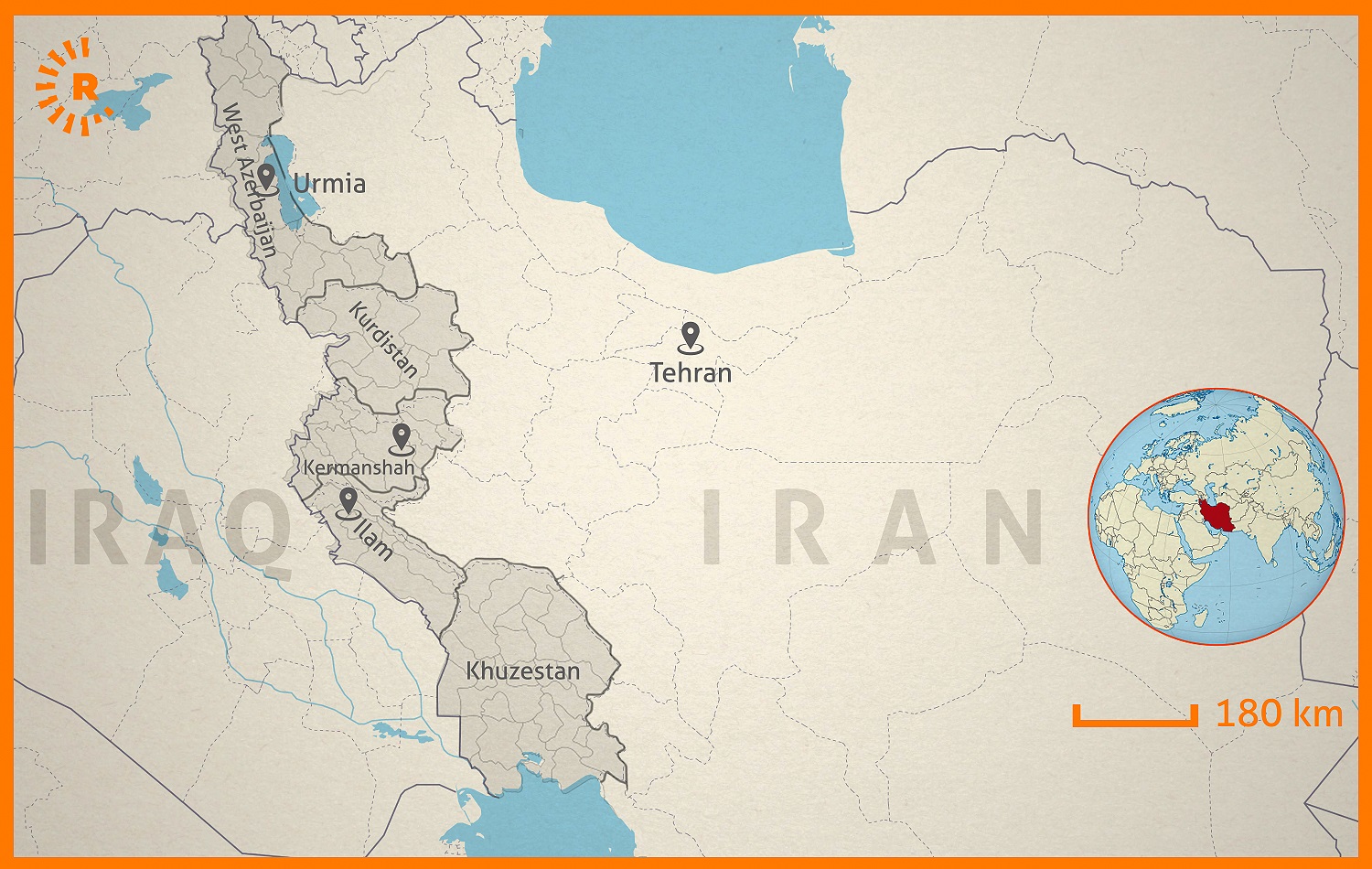
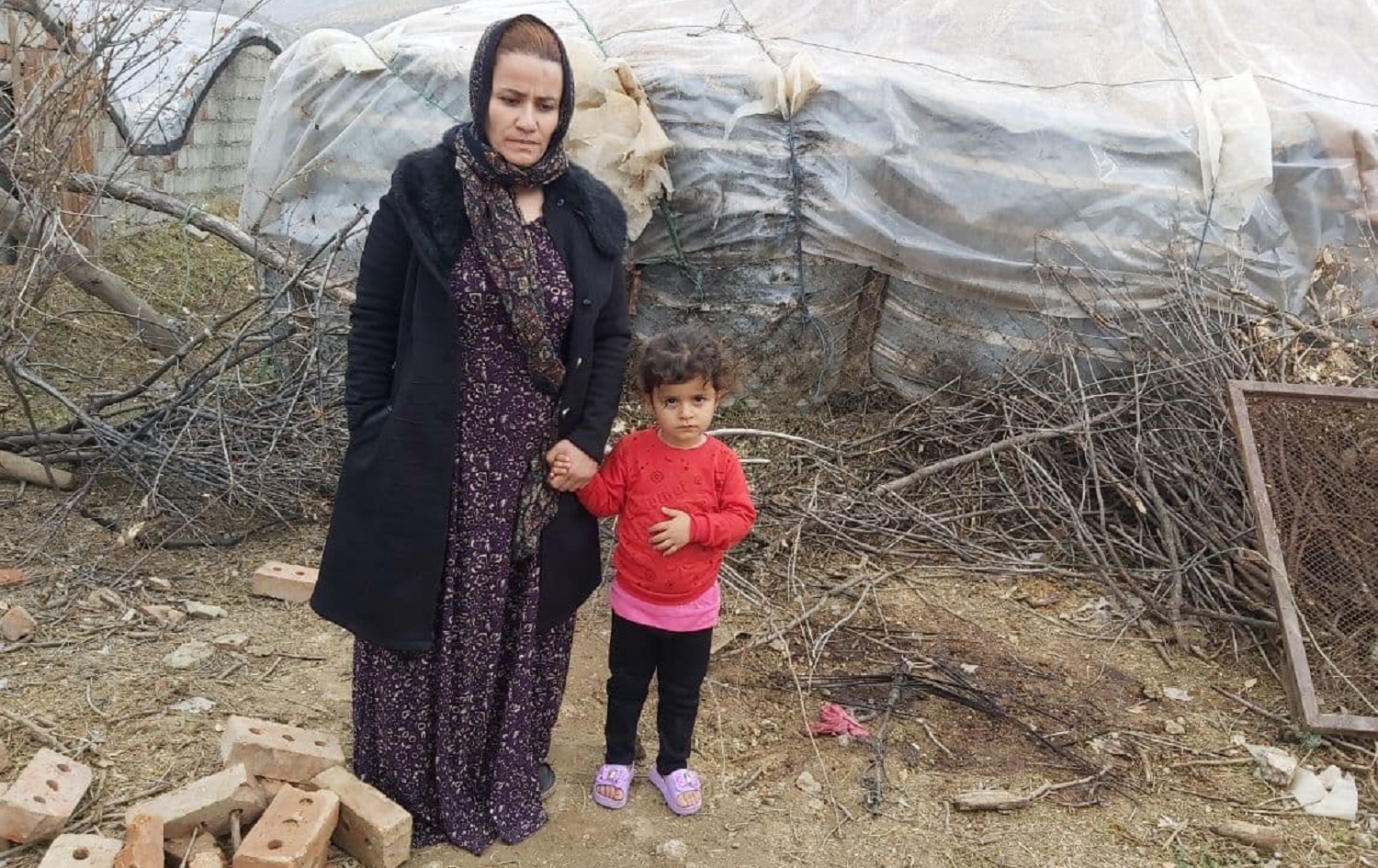
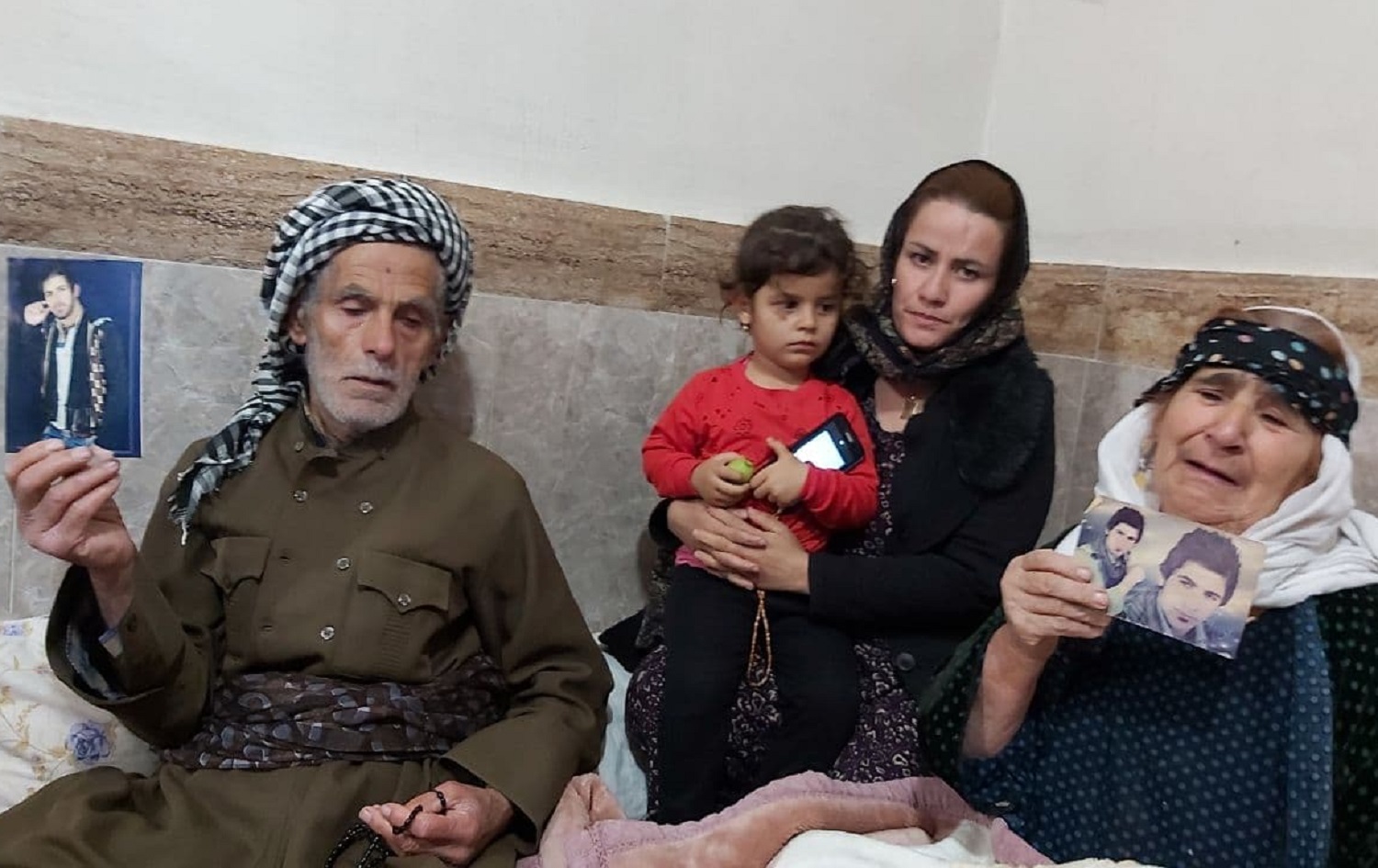





Comments
Rudaw moderates all comments submitted on our website. We welcome comments which are relevant to the article and encourage further discussion about the issues that matter to you. We also welcome constructive criticism about Rudaw.
To be approved for publication, however, your comments must meet our community guidelines.
We will not tolerate the following: profanity, threats, personal attacks, vulgarity, abuse (such as sexism, racism, homophobia or xenophobia), or commercial or personal promotion.
Comments that do not meet our guidelines will be rejected. Comments are not edited – they are either approved or rejected.
Post a comment